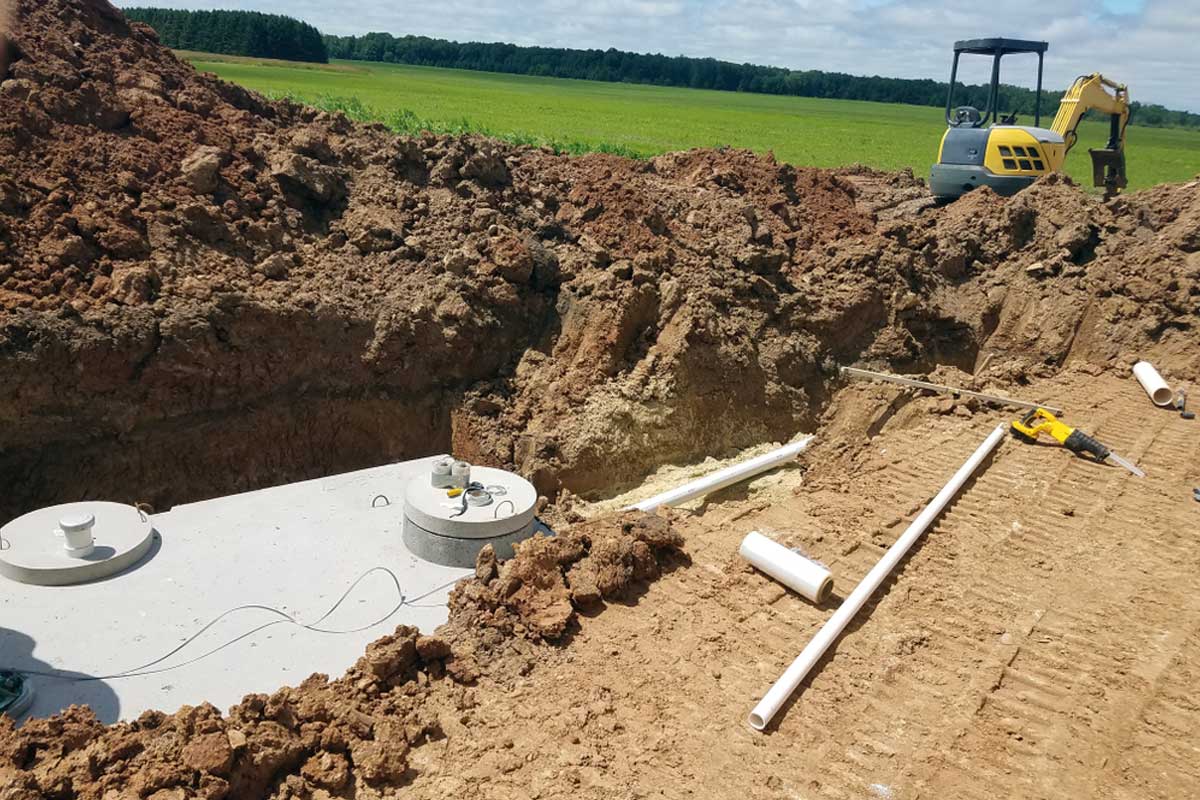There’s a good chance that you have a system for managing your wastewater when you don’t reside in a house that has the municipal sewer line. Septic systems can be an environmentally friendly and effective method to handle sewage. However, they’ll need regular maintenance and could eventually require replacement. We will be providing details on how to handle the costs of septic systems for replacement and installation.

The Price of a Septic System Installation
A septic system installation can be a substantial investment, however, it is crucial to make sure that your home’s wastewater is being handled safely and efficiently. The price of the installation of a septic system will depend on several aspects.
Size of property: To accommodate higher wastewater flows large properties require bigger septic systems. Because of this, larger houses will usually require more elaborate and costly septic systems.
There are many bedrooms. The size of your septic tank will depend on how many bedrooms you have in your home or business. New Hampshire requires a minimum of three bedrooms in order to be equipped with a 1,000 gallon tank. Each additional bedroom will require 250 Gallons.
Site conditions: How the topography of your property and the soil type and permeability will affect the price of installation. Particularly challenging terrains or soil conditions may need an additional excavation or the use of specialized equipment to be used, which can increase the price.
Zoning and permit requirements: The requirements for permitting and/or zoning can be modified by state and locale. Additional fees can be charged for permits and inspections.
The price of the New Hampshire septic tank installation will range from $5,000 to $10,000 on average based on the mentioned factors. It is important to keep in mind that this is just an estimate and the final price can differ in accordance with the individual situation.
The cost of septic system replacement
Septic systems can last between 20 to 40 years, based on how well maintained. If a system that is septic begins to fail, it’s typically more cost-effective to replace it entirely rather than attempting to fix it. The indicators that your septic unit may need replacement include slow drains, the presence of standing water in your backyard and wastewater backups.
The cost of replacing a tank for septic will depend on several aspects like the size of your property in terms of how many bedrooms you have, and what kind of conditions you’re in. But, a septic system replacement typically costs more than a brand new system because of the necessity to get rid of the old system properly.
The cost for replacing a New Hampshire septic tank is between $10,000 and $25,000 depending on the factors mentioned. It is important to understand that this is just an estimate, and the final cost may differ based on the specific circumstances.
Strategies to reduce the expense of your Septic tank
Regular maintenance: Regular maintenance of your septic system, which includes checking and pumping, can prolong its lifespan and avoid costly repair or replacement costs.
It is important to select the right contractor. A reliable and experienced contractor will make sure that your septic system meets code. This will allow you to avoid costly repairs and penalties for violations.
Do not flush biodegradable items. Cleaning nonbiodegradable objects such as diapers or wipes for sanitary purposes can lead to blockages in your septic system, leading to costly backups.
Conserve water: Conserving water can help reduce the load on your septic system as well as extend its lifespan.
Pick the appropriate system for your property Selecting the best design of septic system for your home can help you save money on the installation as well as ongoing maintenance costs.
Proper septic tank cleaning is crucial for keeping your system in good health and running. The maintenance of a septic tank can be a money-saving option and can prevent costly repairs and minimize the risk of groundwater contamination. It also helps avoid odors and backups. Regular pumping can increase effectiveness and reduce the risk of costly damages caused by cracks, clogs and other damage. It is also essential to regularly check the system as this can identify any potential issues before they become serious. Following these steps will help to ensure that you have a safe and efficient system for septic that is in compliance to the environmental standards. A written maintenance plan for your septic tanks can aid in saving time and cost. Also, you’ll have peace of mind knowing that your commercial or home will be in good working order for a long period of time.
For more information, click septic tank replacement cost